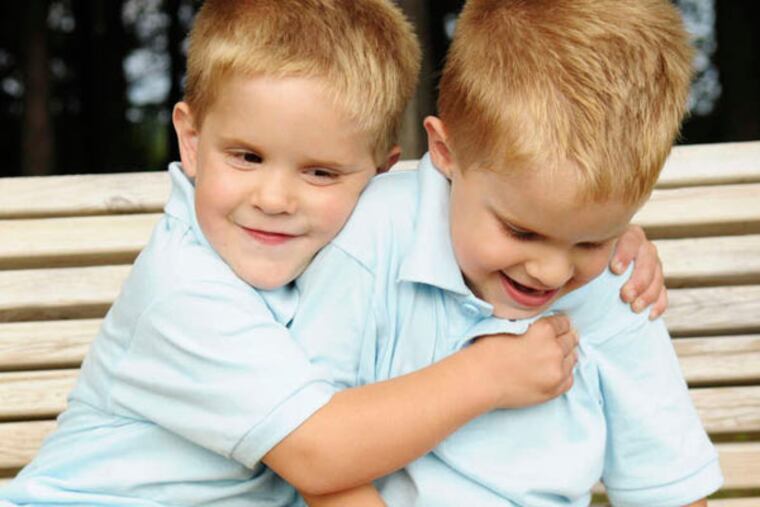Twins talk to parents, but never to anyone else
A set of young twins entered my office as though they were there to be executed - silent and grim-faced.

A set of young twins entered my office as though they were there to be executed - silent and grim-faced.
In fact, they were there merely for a psychological evaluation. And my office is bright and filled with toys - hardly a dungeon. Nonetheless, their mother had to drag them in. I couldn't make them laugh, smile, answer my questions - or even look at me.
Their mother explained their strange silence was the main reason she had brought her twins to the appointment.
Although they were "chatterboxes" at home, talking easily to both parents, other family members, and each other, they had never talked at their elementary school.
Nor would they talk to neighbors, or their baseball coach, or their pediatrician. They would speak aloud to their parents in restaurants or stores but would stop as soon as someone came close enough to hear.
I observed that the twins warmed up to my office and began playing together silently - passing toys back and forth and seeming to enjoy themselves. But whenever I asked either a direct question, they would freeze and look down until I turned my attention back to their mother.
They would participate in all kindergarten activities, as long as those activities did not involve talking. They had never raised their hands to answer a question or shared during circle time. During recess, the twins might play with their peers, but would not talk to them, although very occasionally they might be overheard laughing or whispering to each other.
Their parents and teachers wanted to know why the twins seemed perfectly happy to talk in some situations but not in others.
Solution
It was easy to rule out a language disorder. Both twins had shown normal language development as toddlers, and - under the right circumstances - loved to talk.
Maybe they were controlling others through their use of silence. But these children seemed anxious, not manipulative. And their silence wasn't getting them anything - rather, it was robbing them of many of the joys of childhood.
Perhaps the problem was a sort of evil 'twinspeak'? But evil twins exist only in myth and soap operas. Sometimes twins may appear to use a secret language - the technical term is idioglossia - but, really, they are just babbling to each other, not communicating with true speech.
The twins' normal speech in certain environments and failure to speak in others fit the description of selective mutism, a not-that-rare anxiety disorder that typically affects children of preschool or early school age. Selectively mute children are thought to have an early version of social anxiety that expresses itself as a fear of speaking in public. Effective treatments include behavioral therapy focused on helping them overcome their reluctance to speak and sometimes medications, such as Prozac or Zoloft.
Because of their selective lack of speech and eye contact, selectively mute children are sometimes misdiagnosed as having an autism spectrum disorder. But once they are treated and talking, these children are just as social and engaged as any other.
Just as often, these children are labeled passive-aggressive or stubborn, controlling others through their use of silence. Wrong. Selectively mute children are anxious, not manipulative.
I treated the twins with behavioral therapy over several months. They were never overjoyed to see me, but treatment was successful and they gradually escaped their dungeon of silence. By the end of the school year, they were talking to their teachers and peers - and having a whole lot more fun.